As you drive as much as Darjeeling from the closest railway station or airport in Siliguri, West Bengal, you’re greeted by verdant slopes adorned with tea shrubs, a rainbow of flowers, and deciduous timber. Forests run alongside either side of the Nationwide Freeway, which takes a steep climb after crossing the village of Rohini. Japanese cedar timber (Cryptomeria japonica), domestically known as dhuppi, improve the surroundings because the local weather adorns itself in cooler shades.
Tiny hamlets made up of concrete and picket homes echo with smiles, laughter, and pleasure that resonate with the sounds of nature. Quite a few streams minimize by the Himalayan foothills, gently gurgling round every curve, whereas the chirping of birds provides to the melody.
Nevertheless, as picture-perfect as this may occasionally sound, an ominous plague threatens the setting and, consequently, the livelihoods of many. The signs are evident within the occasional plastic packets, cigarette butts, bottles, and different types of non-biodegradable waste that uninteresting the colourful colors of the panorama.
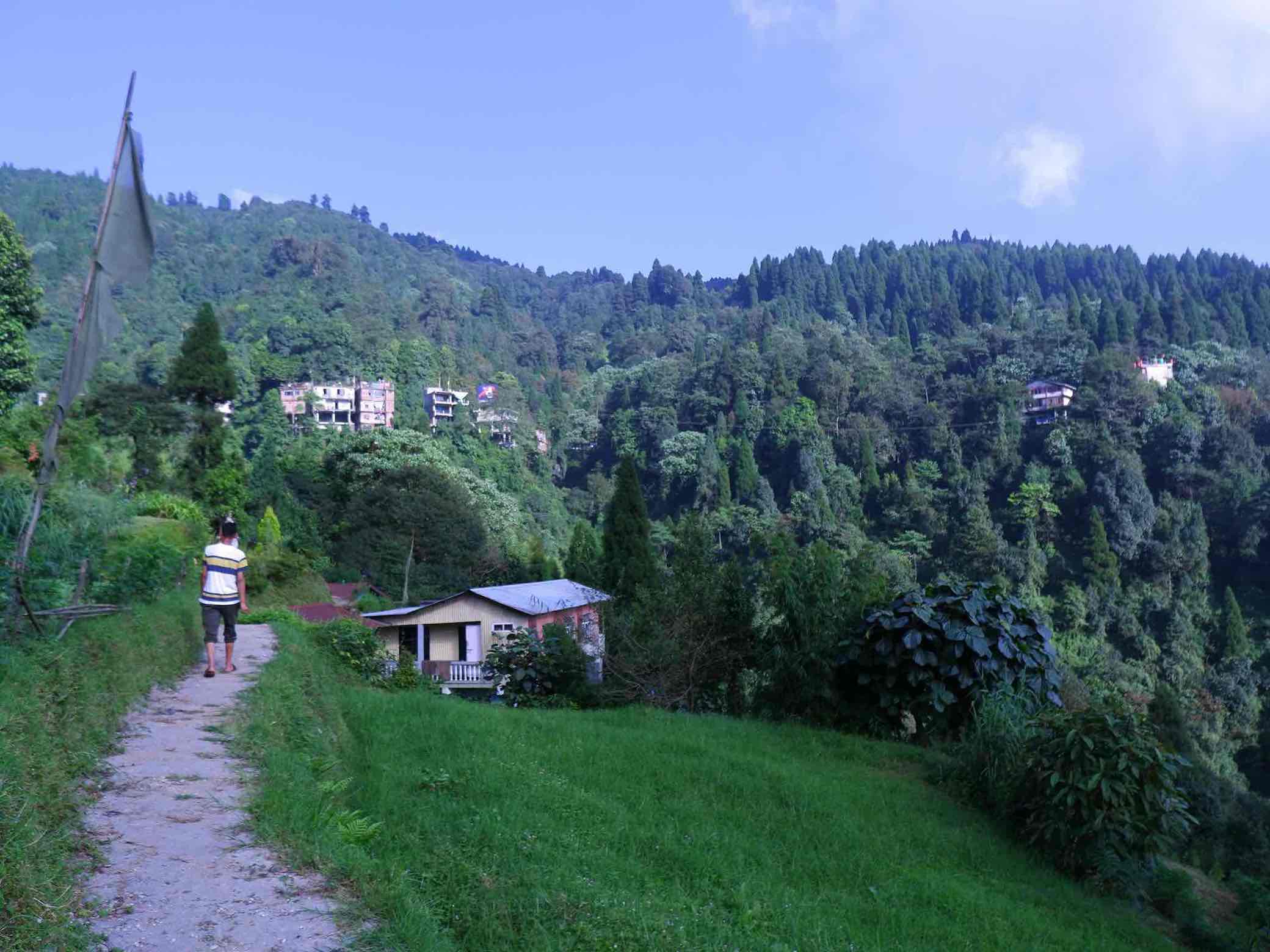
Utsow Pradhan, 43, left his job at an edtech firm in 2015 to return to his ancestral property, the place he would witness this plague and finally begin work in the direction of discovering a remedy. The land that after hosted a brick manufacturing unit had, by 2016, became a dump yard.
“After I first got here right here, the place was a giant dump yard. Even the municipality employees got here and dumped rubbish right here. It wasn’t very seen at first due to the timber surrounding the world,” Utsow recollects. “There was additionally thick undergrowth of vegetation. We didn’t actually know the extent of the issue again then,” he provides.
At a time when improvement had virtually develop into synonymous with concrete constructions, Utsow determined to take a special route. Drawing on custom and his information of permaculture, he based ‘Tieedi’ — an acronym for ‘Take It Simple, Simple Does It’.
Mission Inexperienced Mile: A step in the direction of sustainability
“Initially, the objective was very private; I wished to discover pure buildings by myself and develop my very own meals. However after we began clearing the undergrowth, we started to expertise firsthand the issue of plastic air pollution,” Utsow informs me as we sit in one in every of his mud homes, sipping contemporary Darjeeling tea.
The compound has since remodeled into an eco-resort with its personal waste segregation and composting services. It options a number of cottages constructed from mud and bamboo, the place company usually go to to contribute to the assorted initiatives Tieedi has undertaken.
Utsow, who spent his childhood in Kurseong — a tiny municipality about 40 km away from Darjeeling — says that the transformation he witnessed over time pushed him additional to discover methods through which sustainability and improvement might coexist.
“Earlier, I keep in mind about 5 concrete retailers once I first visited the compound in Gorabari. There have been over fifty now alongside that one-kilometre stretch of highway,” Utsow says.
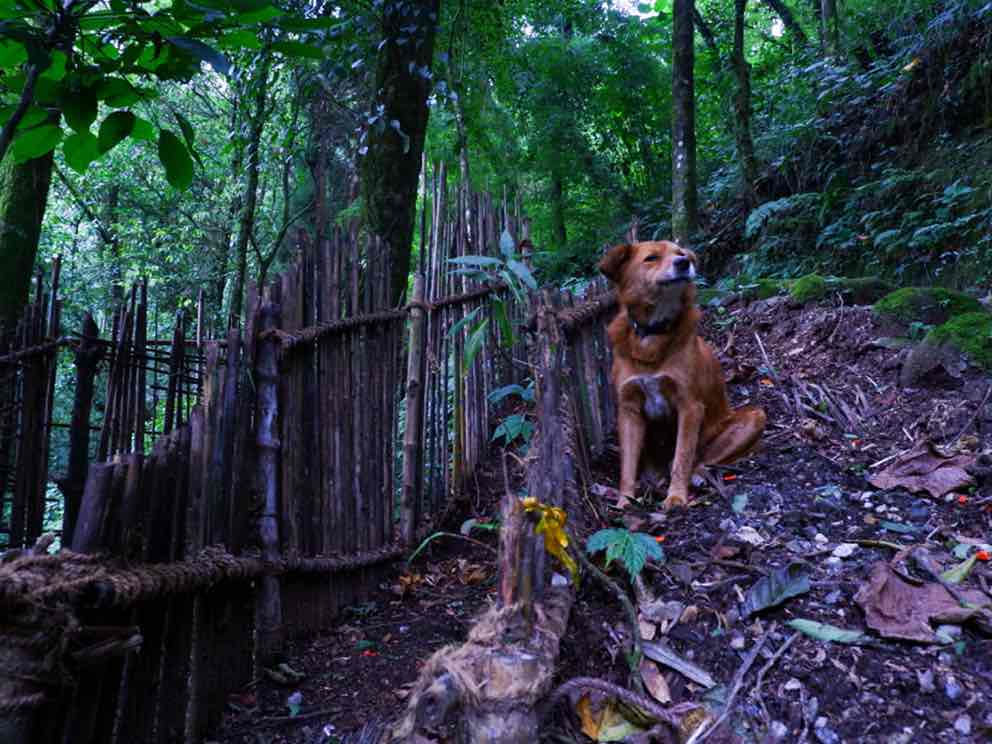
Utsow started by selecting and segregating plastic waste from the location. The duty, nonetheless, was not simple and continues to at the present time. “We began selecting up plastic from beneath the soil. It’s been eight years, and we’re nonetheless selecting up plastic…despite the fact that we’ve eliminated near about 15,000 sacks of plastic from right here,” he shares.
This expertise left an enduring influence on Utsow, and shortly he prolonged his zero-waste initiatives to 3 neighbouring villages. “After we went zero waste, which was only a few months into operations, the dumping of plastic waste regularly stopped,” he says.
As I stroll down a once-nameless village bordering Tieedi, I’m greeted by an enthusiastic man weaving a bamboo basket exterior his home. The village has come to be often called Naya Basti (interprets to ‘new village’) and is situated close to Gorabari, bordering Sonada.
“What Utsow bhai is doing is actually wonderful,” Badal Chettri, 61, tells me. Weaving baskets is one thing he does to cross the time since his retirement, and his merchandise discover their manner into neighbouring retailers.
“You received’t discover any plastic right here,” Badal says with pleasure, including, “There is perhaps a little bit plastic close to a building web site on high. However we’ve requested the employees to assemble all of it in a single place; we’ll accumulate and ship it to the waste facility quickly.”
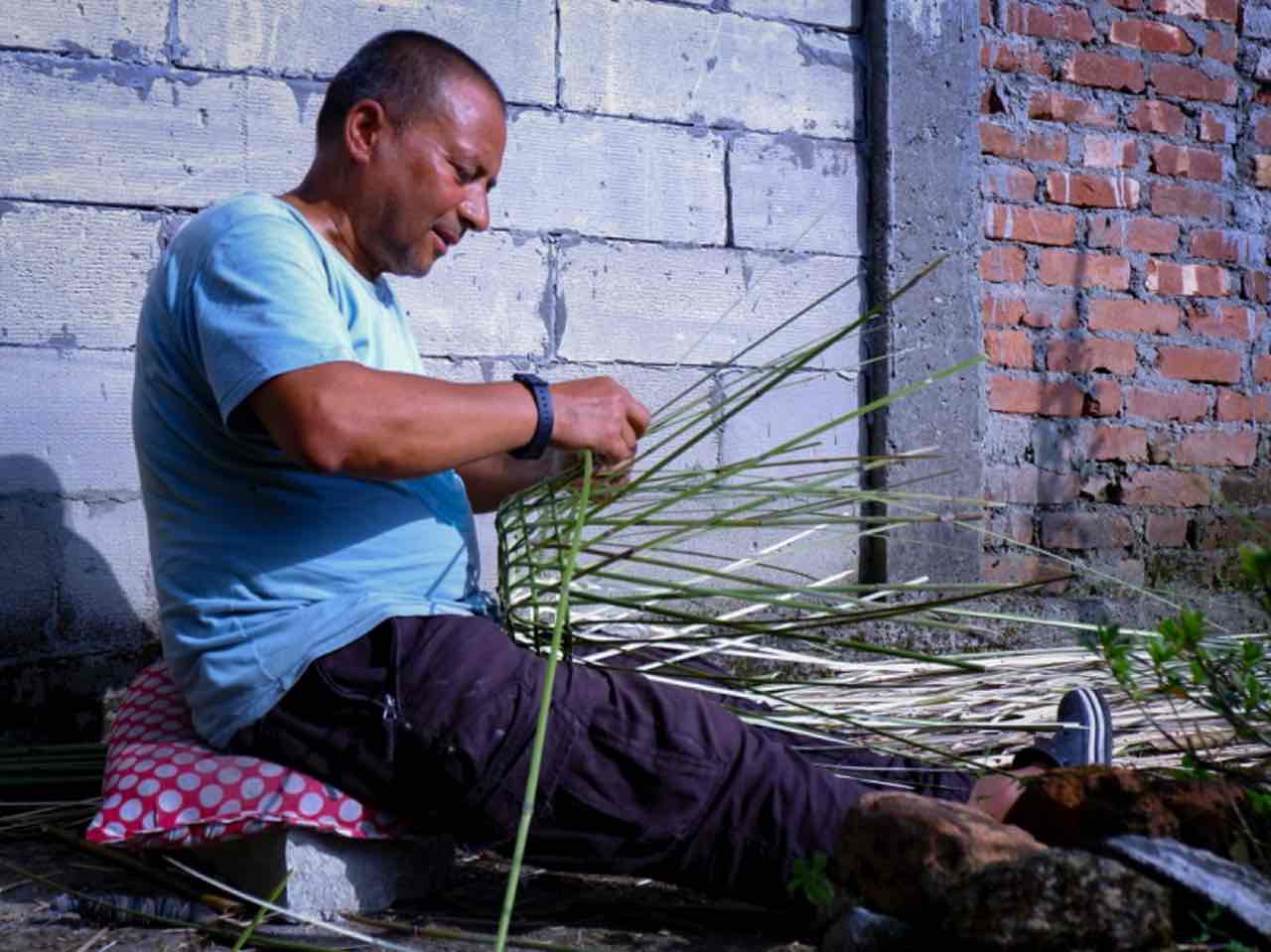
Naya Basti is a part of the one-kilometre stretch Utsow talked about. Homes are linked by steep roads carved into steps, and the air is full of a contemporary sense of serenity. Surrounding it are lush inexperienced forests and a small waterfall main right into a stream that, only a few years in the past, was suffocating underneath massive particles of plastic.
At each nook of the village, tin jars function dustbins. Riwash Tamang, who helps accumulate the waste and ship it to the segregation facility, recollects a current go to from a bunch of youngsters from a close-by college. It has been three years since he first joined work. “The kids got here with their lecturers,” he tells me, unable to recall the varsity’s identify, “They had been thrilled to see the cleanliness of our village. It’s a good factor. We now know how one can take care of all of our family waste.”
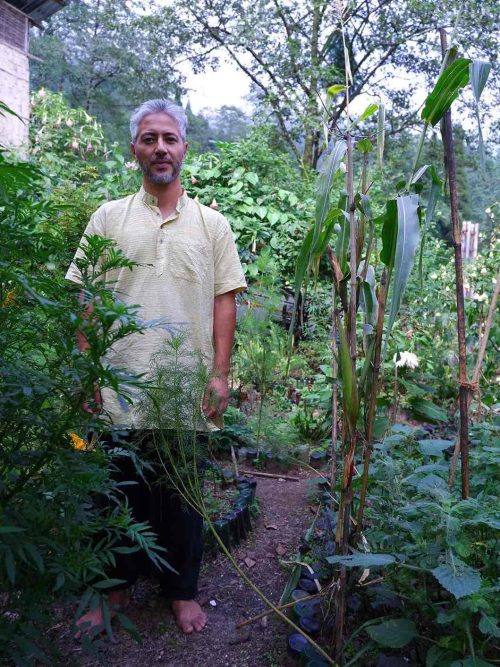
The close by village of Rajahatta, which additionally falls alongside the identical one-kilometre stretch of highway, has the same story. As you attain the steps that climb up a forested path, a signboard introducing the world as a zero-waste village greets you.
As the method of turning into zero-waste is ongoing, Utsow has made waste assortment from the area a day by day process underneath a challenge named the Inexperienced Mile Undertaking.
Whereas the duty may’ve been herculean, Ustow and his staff had been supplied the required help by DCB Financial institution. “DCB Financial institution has been our CSR associate within the Inexperienced Mile Undertaking for the final three years. They performed an instrumental position in funding the challenge and serving to us launch the three zero waste villages of Darjeeling,” Utsow acknowledges.
Meet the waste warriors
With the assistance of his staff, Utsow has constructed a powerful waste therapy facility that segregates waste into 53 classes earlier than treating or recycling it.
As I stroll down the steps to achieve the constructing, Snehal Sinalkar, who oversees the challenge as staff lead, introduces me to their waste warriors — a bunch of chickens, two rabbits anticipating new mates quickly, and two guinea pigs.
Pointing on the composting pit, Snehal says, “This has the capability to course of 100 kg of waste. So, we dump the waste right here, and the chickens do their work.”
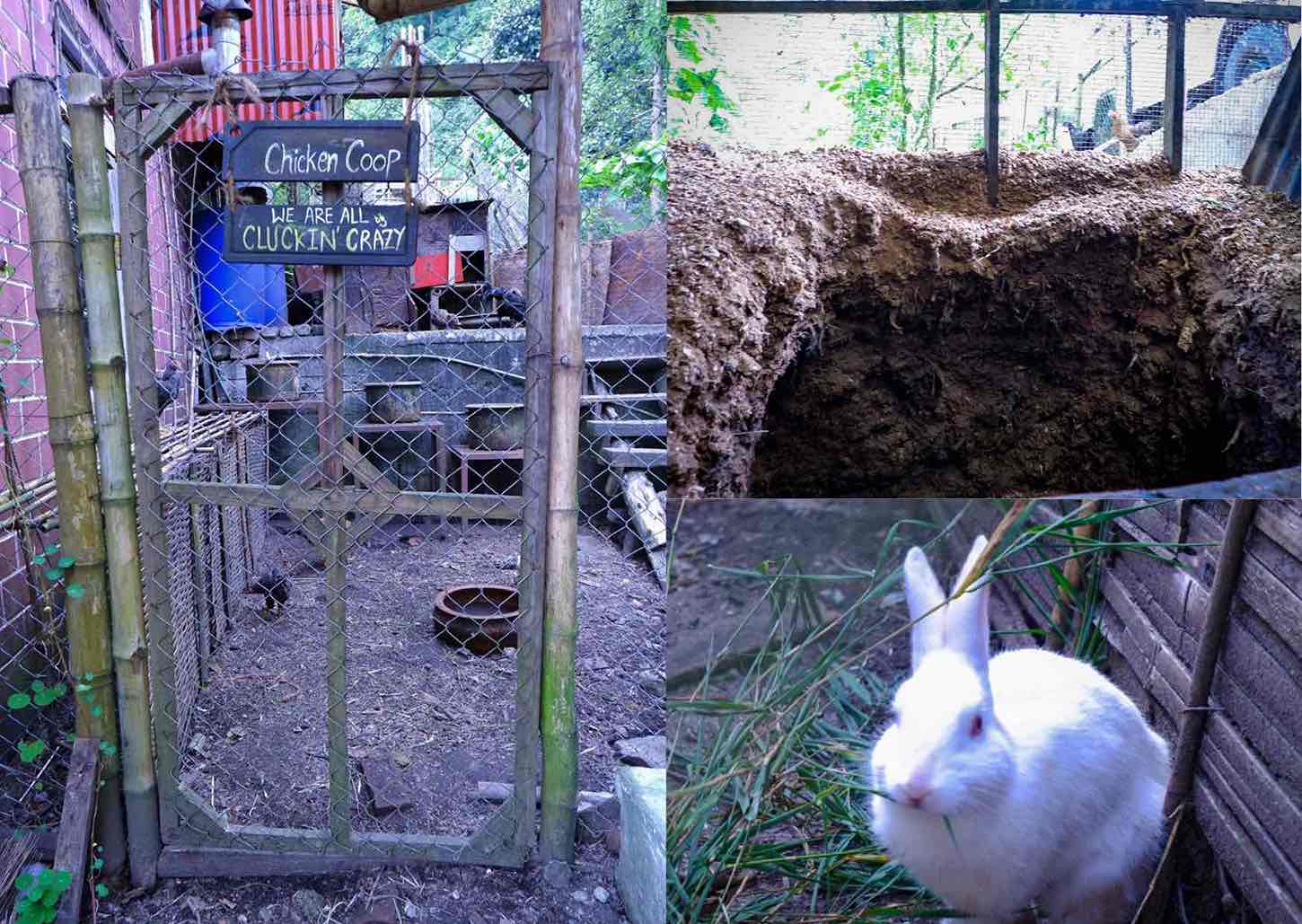
“Animal integration is a significant a part of permaculture. The chickens eat loads of the biodegradable materials, after which they poop. That works as a catalyst in processing the biodegradable materials,” she explains. “In addition they have one other essential position — aeration. That is essential for sustaining moisture and oxygen ranges within the compost,” she provides. Aeration entails creating air pockets that permit sufficient oxygen to transform natural matter into compost.
All the assortment and composting course of is finished manually. The sloping terrain is utilised, permitting waste to be positioned at a facility uphill from the place it gently rolls right down to the composting space.
Reviving a stream
“We’ve planted about 600 timber within the space,” Utsow says once I ask him concerning the tiny river flowing by the compound. “We’ve additionally minimize the hills into steps to permit water to recharge the soil,” he provides.
This river, like a number of others flowing within the Shivaliks, is most lively through the monsoon season. It’s principally rain-fed and infrequently acts as a tributary to glacier-fed rivers just like the Teesta and Ganga.
This explicit stream has develop into perennial, Snehal informs me, explaining that the considerable groundwater gives a continuing stream. Members of the Tieedi staff have additionally positioned nets alongside the stream’s borders to stop individuals from dumping rubbish. An attention-grabbing approach they make use of is establishing a small temple at part of the stream.
“Treating it as an auspicious web site prevents locals from dumping rubbish right here,” Snehal explains. A tiny bamboo bridge connects either side of the complicated, and the river’s fixed stream provides melody to the voices of the various birds inhabiting the world.
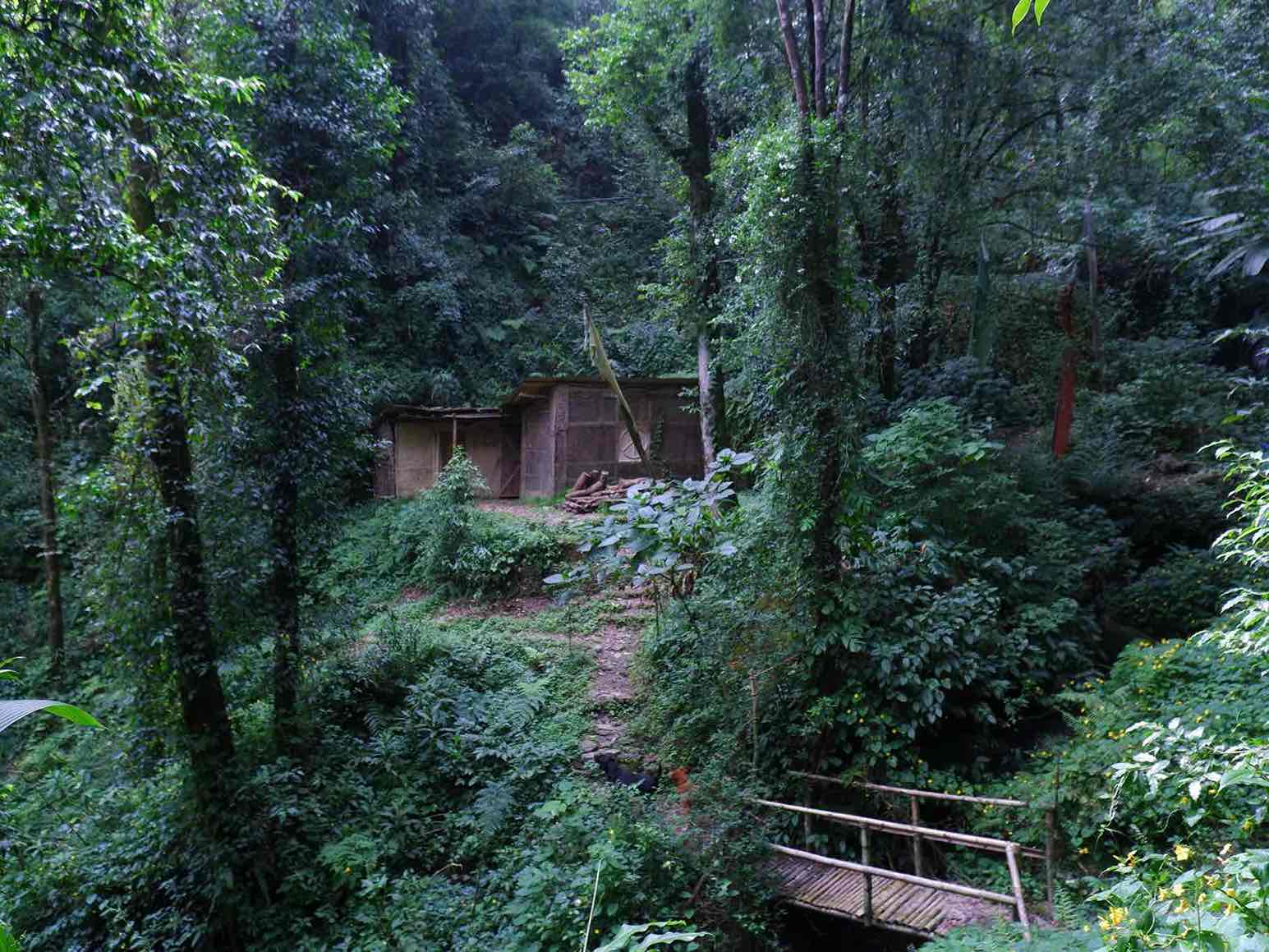
The quite a few indigenous vegetation, together with vegatables and fruits, are all grown organically. Mulching pits, neatly divided alongside the steps, help on this course of.
In Naya Basti, Badal tells me that Tieedi’s initiative has helped them higher perceive waste administration, and they’re now imparting this information to the youthful generations. He’s additionally happy that it’s producing employment alternatives for the individuals. “We provide immersive experiences for travellers. We host occasions like Banbhaat, which is an artwork, music, and poetry pageant steeped in native tradition. We additionally organise the Darjeeling Eco-Path run, which fits by the encircling villages,” Utsow informs me.
“Right here, native delicacies like selroti and aloodum are featured, and the locals themselves are a part of the entire programme, which helps us curate it in a really genuine manner. We additionally promote bamboo weaving,” he provides.
Tieedi’s intervention, Utsow says, can be serving to revive the bamboo trade, which individuals are regularly forgetting. Bamboo performs an essential position within the buildings constructed inside Tieedi as effectively. As I put together to depart, I’m greeted by Riwash, whose phrases I’ll carry residence:
“Nature is essential; it’s absolute. We should be taught to reside in concord with it.”
Edited by Pranita Bhat


